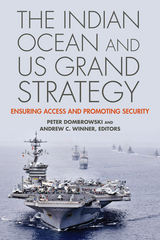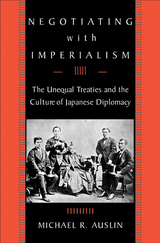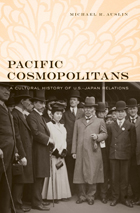
The Indian Ocean, with its critical routes for global commerce, is a potentially volatile location for geopolitical strife. Even as the region’s role in the international economy and as a highway to conflict zones increases, the US has failed to advance a coherent strategy for protecting its interests in the Indian Ocean or for managing complex diplomatic relationships across the region. The Indian Ocean and US Grand Strategy presents a range of viewpoints about whether and how the US should alter its diplomatic and military strategies for this region.
Contributors examine US interests in the Indian Ocean, assess the relative critical importance or imperiled nature of these interests, and propose solutions for American strategy ranging from minimal change to maximum engagement. The book concludes with a comparative assessment of these options and a discussion of their implications for US policymakers. This volume’s perspectives and analysis of the Indian Ocean region will be valued by scholars and students of US foreign policy, South Asia, and security studies as well as by diplomats, military officers, and other practitioners.

Japan's modern international history began in 1858 with the signing of the "unequal" commercial treaty with the United States. Over the next fifteen years, Japanese diplomacy was reshaped to respond to the Western imperialist challenge. Negotiating with Imperialism is the first book to explain the emergence of modern Japan through this early period of treaty relations.
Michael Auslin dispels the myth that the Tokugawa bakufu was diplomatically incompetent. Refusing to surrender to the West's power, bakufu diplomats employed negotiation as a weapon to defend Japan's interests. Tracing various visions of Japan's international identity, Auslin examines the evolution of the culture of Japanese diplomacy. Further, he demonstrates the limits of nineteenth-century imperialist power by examining the responses of British, French, and American diplomats. After replacing the Tokugawa in 1868, Meiji leaders initially utilized bakufu tactics. However, their 1872 failure to revise the treaties led them to focus on domestic reform as a way of maintaining independence and gaining equality with the West.
In a compelling analysis of the interplay among assassinations, Western bombardment of Japanese cities, fertile cultural exchange, and intellectual discovery, Auslin offers a persuasive reading of the birth of modern Japan and its struggle to determine its future relations with the world.

Decades before Americans cheered on Ichiro Suzuki, Japanese baseball fans swooned over Babe Ruth. And a century prior to the craze for anime and manga, American art collectors hoarded Japanese woodblock prints. Few relationships can match the depth, or importance, of the cultural ties between America and Japan over the past two hundred years. In Pacific Cosmopolitans, Michael Auslin tells this absorbing history in full for the first time.
From the moment adventurers reached each other's shores in the early 1800s, cultural encounter formed the bedrock of U.S.–Japan ties. Such casual connections turned into formal cultural exchange within the emerging global society of the late nineteenth century. As both countries became great powers, new cultural institutions supplemented political ties and helped promote economic trade, shaping the Pacific world yet becoming entangled in controversy. These trans-Pacific activities faced critics in both countries and were overwhelmed by rising nationalism and geopolitical crisis in the early twentieth century.
In the decades since World War II, however, U.S.–Japan cultural exchange has again been seen as a crucial means to strengthen the bonds between the two nations. Bringing together philanthropists like the Rockefeller family and artists like Akira Kurosawa, along with untold numbers of ordinary Americans and Japanese, the acolytes of exchange continue to believe that cross-cultural understanding will promote a more peaceful future, even in the face of competing national interests.
READERS
Browse our collection.
PUBLISHERS
See BiblioVault's publisher services.
STUDENT SERVICES
Files for college accessibility offices.
UChicago Accessibility Resources
home | accessibility | search | about | contact us
BiblioVault ® 2001 - 2024
The University of Chicago Press









